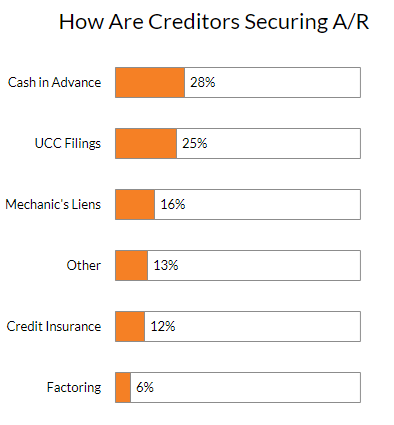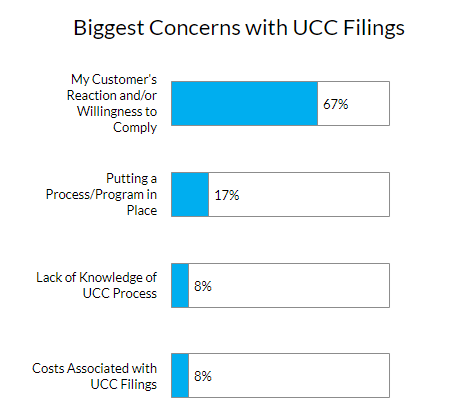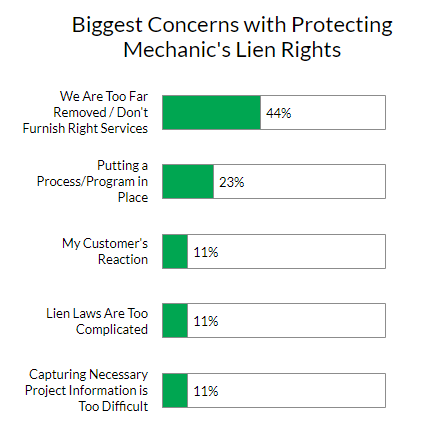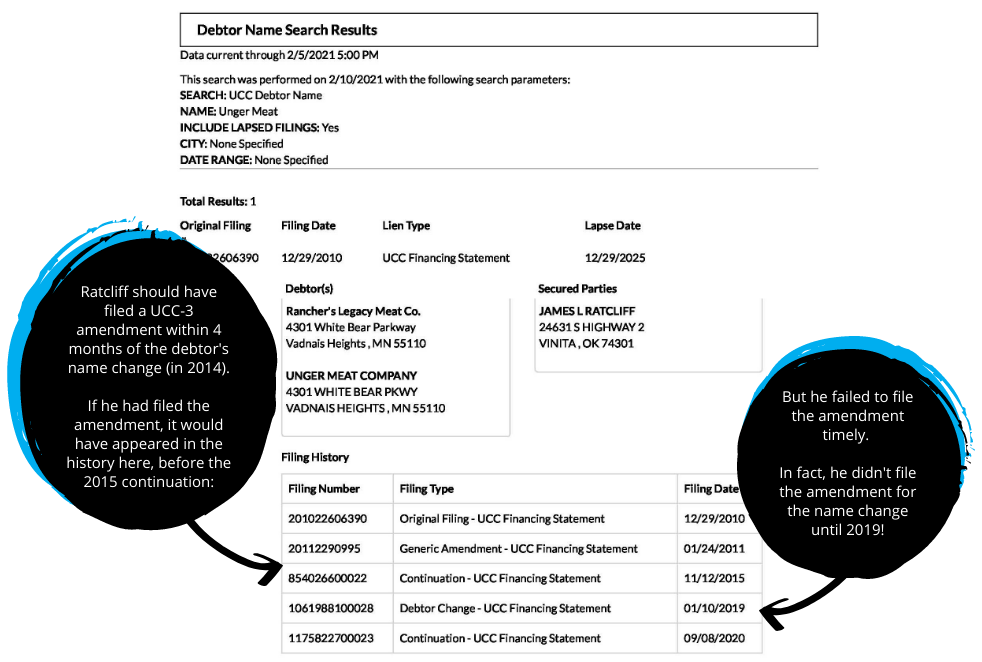
Yes, UCC Filings Work, and Here’s a $95,000 True Story
With a properly perfected security interest (aka UCC filing), you can recover funds (or inventory/equipment) from your customer in the event of default or bankruptcy. Of course, as a brilliant credit professional this is not news to you, after all, it’s why you file UCCs – to protect your receivable. But did you know you could potentially recover funds from unsecured creditors who were paid with funds secured by collateral identified in your UCC? It’s true; UCC filings work.
Let Me Be Candid for Just a Second
Here’s the reality, sometimes UCCs unfairly get a bad rep. I’ve heard creditors balk at UCCs, claiming they are ineffective, a waste of money, and for all intents and purposes, useless. Some say, “Why bother filing a UCC, the bank is always going to be ahead of me?” or “Nah, there’s no guarantee that UCC will get me paid!” and others “Well, even if I file a UCC, if my customer files for bankruptcy, I won’t see a dime.”
Further, some believe in putting their security all in one proverbial basket : “We don’t need UCCs, we use credit insurance,” or “We don’t need UCCs, we file 503(b)(9) claims.” And, you know what? Is it possible, perhaps even likely, a bank will ask you to subordinate? Sure. Are UCCs an absolute guarantee? Nope, though neither is credit insurance or 503(b)(9) claims. But it bears repeating, UCC filings work. Honest, they do.
So, for my credit friends hanging out in the UCC-non-believer-pool, this is a $95,000 story you should read.
Tale as Old as Credit: Secured Creditor vs. Unsecured Creditor
In a recent decision from a U.S. Bankruptcy Court in Kentucky, secured creditor Nutrien AG Solutions, Inc. (Nutrien) was awarded summary judgment and able to recover funds paid by the debtor to unsecured creditor Burkmann Feeds of Glasgow, LLC (Burkmann).
The relationship between the debtors and Nutrien began in 2013, at which time Nutrien executed several Security Agreements with the debtors and then filed its UCCs. The relationship continued, an additional Security Agreement was executed in 2017, and its UCC filings were appropriately amended to include additional debtor names. The collateral description within the 2017 agreement and on the UCC filing was (emphasis added):
“All of the following whether now owned or hereafter acquired, all products and proceeds thereof, all additions or accessions thereto, and all substitutions and replacements thereof: All crops growing, grown or to be grown in 2017 and subsequent years. All harvested crops. All warehouse receipts or other documents (negotiable or non-negotiable) issued for storage of such crops. All seeds, fertilizer, chemicals and petroleum, and any other crop input products. All inventory, contract rights, chattel paper, documents, instruments, supporting obligations, accounts, general intangibles, and cash and noncash proceeds from the sale, exchange, collection, or disposition of any of the Collateral. All entitlements and payments, whether in cash or in kind, including but not limited to agricultural subsidy, deficiency, diversion, conservation, disaster, contract reserve, under any government or any similar or other programs. All farm and business machinery, equipment and tools.”
In 2018, the debtors entered a “Payment Agreement” with Burkmann and Burkmann did not file a UCC. Within the agreement, the following appears: “I hereby agree to give my entire MFP payment as partial payment for charges incurred regarding the above account number with Burkmann Feeds of Glasgow, LLC.” (MFP = Market Facilitation Program)
There were some other issues with this case, but ultimately the debtors applied for and received MFP payments totaling $95,000. The debtors then used the subsidy payments to pay Burkmann $95,000. Nutrien caught wind of this payment to Burkmann and Nutrien’s counsel sent a demand to Burkmann for the $95,000. Burkmann denied Nutrien’s demand.
Fast forward. Debtors file for bankruptcy. Burkmann files its proof of claim, and attached a promissory note and real estate mortgage, but no UCC filing. Nutrien contended its own properly perfected security interest covered the MFP payment that was made to Burkmann. The court agreed:
“The Application & Note/Security Agreement executed by the Debtors on July 11, 2017, at Paragraph 2, granted a security interest to Nutrien on all entitlements and payments “including but not limited to agricultural subsidy, deficiency, diversion, conservation, disaster, contract reserve, under any government or any similar or other programs.” As outlined in the Findings of Fact section of this Memorandum, Nutrien properly perfected its security interest in payments from all governmental programs by filing UCC Financing Statements against each of the Debtors. Since Burkmann Feeds did not perfect any security interest with respect to the funds owed them by the Debtors in 2018, Nutrien’s interest takes priority over any interest of Burkmann Feeds in the MFP payments.”
Recap:
“Nutrien properly perfected its security interest… Since Burkmann Feeds did not perfect any security interest… Nutrien’s interest takes priority over any interest of Burkman Fees in the MFP payments.”
Ouch, that’s gotta sting.
As with any court case, there was additional back and forth. Futile efforts by Burkmann to stake its claim in this $95,000, but the court wasn’t having it. Ultimately, the court then determined Burkmann was guilty of conversion. Admittedly, I was unfamiliar with conversion, but in Kentucky it is the “wrongful exercise of dominion and control over property of another.” In other words, Burkmann accepted funds that belonged to Nutrien.
Here comes my favorite part:
“Nutrien made demand on Burkmann Feeds for return of the $95,000 paid to the Debtors which they then paid to Burkmann Feeds under the MFP program. Under Article 9 of the UCC, Nutrien had superior rights to these funds over Burkmann Feeds at the time Burkmann Feeds took possession of them. Burkmann Feeds exercised dominion and control over the funds in a manner that denied Nutrien its rights in the funds. Burkmann Feeds intended to interfere with Nutrien’s rights to the payments when it refused Nutrien’s demand for return of the funds and Nutrien was damaged by the loss of the funds by Burkmann Feeds’ refusal to return them. Thus, all of the elements to establish a claim for conversion are met.
The facts as determined by the Court based upon the record are undisputed. Under Article 9 of the UCC, Nutrien had a perfected security interest in the $95,000 MFP payment that the Debtors paid to Burkmann Feeds. Burkmann Feeds’ interest was subordinate to that of Nutrien and under the undisputed facts, Burkmann Feeds’ retention of those funds constitutes conversion under Kentucky law. Accordingly, summary judgment in favor of Nutrien on Count III of the Complaint is appropriate.”
What does that mean?
Burkmann, the unsecured creditor who didn’t file a UCC, gets to pay Nutrien, the secured creditor who did file a UCC, $95,000.
Yes, UCC filings work.










